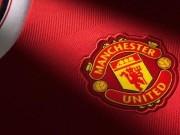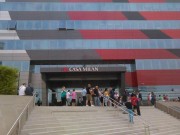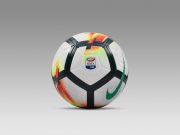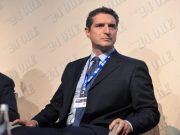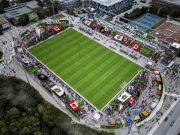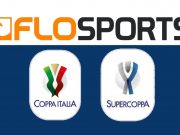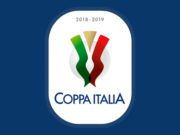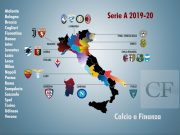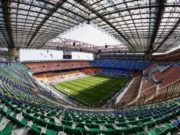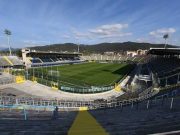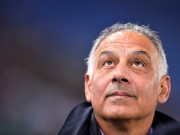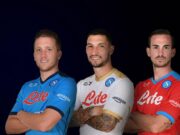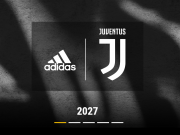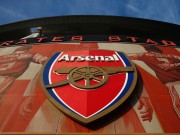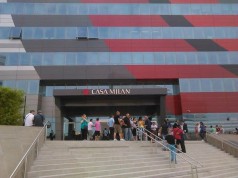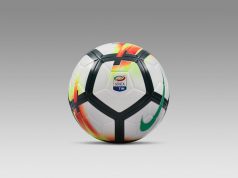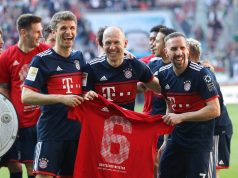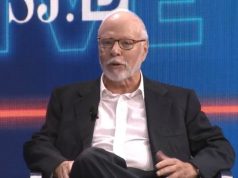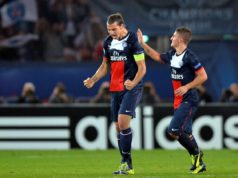Football economics would suggest that teams who spend more will win more, and to some extent, the clubs with the money to buy the best players will always rise to the top. However, there is still room for prudence and financial acumen.
Each season, during the winter and summer transfer market windows, clubs have the opportunity to enhance the value of their squads by buying and/or selling players and, in some cases, leverage player trading activity to optimise their books.
KPMG Football Benchmark analyzed the average net player trading activity, between the 2011-12 and 2014-15 seasons, of the most prominent European football clubs by Enterprise Value (EV).
Generally speaking, Profit/Loss on disposal represents the difference between the income related to the sale of players and the net book value of the player at the moment of the disposal. The Amortisation outlines the capitalised costs associated with the acquisition of players’ registrations spread out over the period of each player’s contract.
At the end of any transfer market window, if profits from transfers exceeds the annual amortisation of the team, the club benefits from a positive player trading activity balance. On the other hand, the more negative the final balance is, the higher the investment the club has committed to improve their team.
According to KPMG, only 25% of the 32 clubs reviewed recorded positive average net player trading activity between 2011-12 and 2014-15. This is a clear indication of how the top European clubs prioritize on-pitch competitiveness and work for an ongoing improvement of the teams.
Unsurprisingly, the Top 10 clubs by Enterprise Value are also, with the exception of Arsenal FC, those at the bottom of average net player trading activity. The Italian team FC Inter, a club that has invested significantly in recent years to recapture past glories, just occupied Arsenal’s spot. Meanwhile, the Gunners have generated significant profitability from the disposal of players without losing purchasing power for the acquisition of new team members. In 2013 and 2014, indeed, Arsenal signed their two most expensive players in Mesut Özil and Alexis Sanchez. All of these, at the cost of a negative balance of “only” €10 million.

Clubs with lower Enterprise Values in KPMG’s Valuation Report need to increase income streams through the disposal of players. In particular, to disproof the previously mentioned “spend more, win more” theory, let’s look at some examples below.
The two leading Portuguese clubs, FC Porto and SL Benfica, top the table of the average player trading activity with €22.6 million and €22.1 million, respectively, followed by Spain’s Sevilla FC (€12 million), AFC Ajax of the Netherlands (€8.9 million) and England’s Tottenham Hotspur FC (€6 million). While Tottenham’s numbers are inflated by a record-breaking, one-off disposal (Gareth Bale to Real Madrid CF in 2013), the other clubs represent a virtuous example of player trading activity.
Noteworthy is how Sevilla FC, with a strategy based on efficient re-investment of the profits from players’ disposal, has been able to become one of best team in the league after Barcelona FC and the Madrid pair of Real and Atlético. While Sevilla’s domestic success may have been limited, they have gained international recognition, winning three consecutive UEFA Europe Leagues.
If Sevilla FC is the proof of how sporting results can coexist with sustainable management, Atlético de Madrid, and to some extent Borussia Dortmund, took this concept to the next step.
Atlético’s stream of high-profile player sales have yielded regular transfer fee income, evidenced by an average net player trading activity (negative by only €1.7 million) that is impressive for a club able to win LaLiga, the UEFA Europa League and reach two UEFA Champions League finals– in an era dominated by Barcelona FC and Real Madrid CF. In Germany, competing with the superpower of FC Bayern Munich, Borussia Dortmund won the Bundesliga (2012) and reached the UEFA Champions League final (2013) during the analysed period, recording a positive average net player trading activity of €1.4 million.



